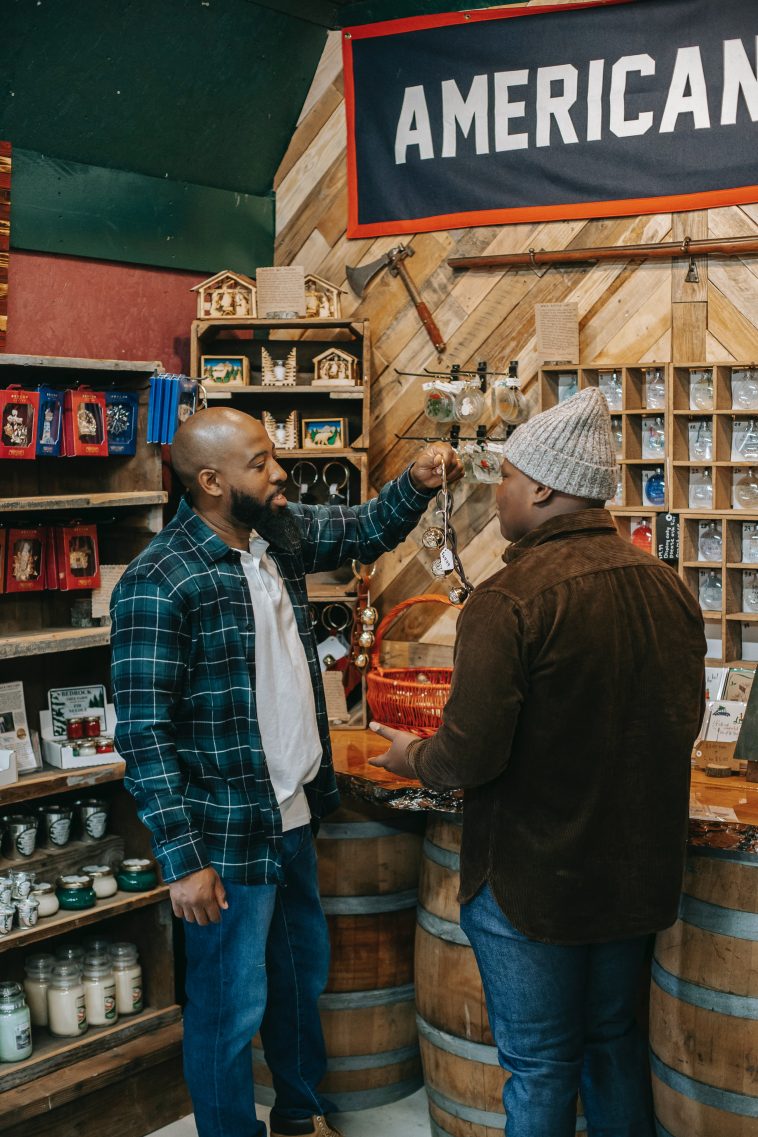Some of your primary goals as a traveler may include exploring breathtaking locations, challenging yourself, seeking new adventures, developing a more comprehensive worldview, and understanding the differences between different communities. Interacting with local artisans about the intricacies of their products, such as the designs, the materials used to make them, and other complexities surrounding their craft, is one of the most meaningful ways to gain a better understanding of the local culture and traditions.
Local artisans work tirelessly to ensure that the products are of the highest quality. Interacting with them will not only make you appreciate the community’s rich history but will also foster a deep appreciation for their craft. You will also gain a better understanding of the community’s way of life, including its culture, traditions, and heritage.
In this blog, we will discuss various ways to converse with local artisans while traveling in a respectful and polite manner. In a nutshell, we’ll go over the economic impact of local artisans and how you can help by supporting them. Furthermore, we will examine the role that local artisans play in preserving local beliefs and culture. Finally, we will give you invaluable advice on how to engage with local artisans and make your conversation more meaningful. So, let’s get started!
Research Ahead of Time
It is critical to do your research ahead of time because it will keep you up to date on any local events, festivals, or activities that are taking place. It will also give you a general idea of the goods sold by local artisans and where to find them. Take copious notes as you conduct your research so that you can create a vacation to-do list.
You should learn about cultural differences; this will alert you to any potential barriers and allow you to adjust your approach accordingly. You’ll also save a lot of time and money if you plan the majority of your trip ahead of time. Since local artisans are now active on internet, it is preferable to connect with them ahead of time via social media channels to schedule an in-person meeting.

Engage with many Local Artisans
Talking with as many local artisans as possible is the best way to learn about the local culture and traditions. So take advantage of every opportunity to speak with them, and we guarantee that every conversation will leave you wiser. There will always be something meaningful to take away from the conversation. If you did your research correctly, you should already have a list of questions prepared before you start talking to them.
Local artisans are often known for their high quality products and personal attention they give their customers. Furthermore, they are open to a one-on-one discussion about the product’s various features. As a result, don’t be afraid to ask your questions.

Respect Local Traditions & Culture
Spend some time learning about their culture, heritage, beliefs, and traditions, so you know the do’s and don’ts . It is critical that you maintain an open mind and do not dismiss their views or impose your beliefs on them. You must respect and appreciate their hard work and skill, even if their beliefs contradicts yours. Ask questions, but not too many. Show genuine interest and refrain from expressing opinions that may offend them.
Touching the work of a local artisan without permission, for example, may be considered disrespectful in some communities but a sign of appreciation for the artisan’s work in others. You must respect local traditions and should at no cost violate them, as doing so will put you in the spotlight and make interacting with local artisans difficult.

Learn the Basics of the Local Language
While travelling, speaking the local language is a great way to connect with local artisans because they will feel more at ease interacting with you and will treat you as one of their own. If you have enough time before your trip, try learning the local language. If not, learn at least the fundamental greetings and pleasantries.
Knowing how to communicate in the local language can help lay the groundwork for the subsequent conversation. If you are unable to learn the local language, hiring a local guide who is fluent in the language and can converse with the local artisans is always a good idea. Furthermore, the local guides are very familiar with the landscape, local cultures, and traditions, thus you can learn a lot about the community.

Attend Workshops
Local artisans organize workshops for a nominal fee that can last anywhere from one day to one week, depending on the topics covered. These workshops are a great way to get a behind-the-scenes look at how a product is made. You will learn their trade firsthand and gain hands-on experience that you will remember for the rest of your life.
There is no better way to immerse yourself in the local culture and learn more about its craft and significance. More often than not, you will leave the workshop a happier person with a greater appreciation for their profession and skills. At no point should you allow your preconceived bias to get in the way of learning because it will prevent your mind from accepting new information and will be a major impediment in the learning process.

Document your Experiences
Make a point of documenting every step of your journey (preferably with photos) to gain a better understanding of the local traditions and cultures. It can be as detailed as writing about each local artisan’s visit and answering questions like, “What was the most unique about them?” or “What were the most memorable aspects of each artisan’s visit?”
It could also be as simple as recording the highlights of the entire experience. Be sure to document it for future reference so that you can share your experiences with family and friends back home without leaving out any important details.

Pay a Fair Price
Since hand-made products by local artisans require a significant amount of time, effort, and resources, you should be willing to pay a reasonable price for them. Each artisanal product is unique and has distinguishing features that set it apart from other products. If you believe the price is too high, you may respectfully request a price reduction from the artisan. However, do not put pressure on them to lower their prices because it is equally important to respect their decisions, and excessive haggling can be perceived as disrespectful and undervalue the artisans’ work.
If the price is too high for you, consider the value of the product before making your decision. You should always consider buying directly from local artisans rather than a middleman, because this ensures that the artisans receive the full value of their work.

Conclusion
In conclusion, engaging with local artisans while traveling can be a rewarding and enriching experience that allows you to learn more about the culture and traditions of the destination. By following these tips, you can make the most of your interactions with local artisans and gain a deeper understanding of their crafts and their way of life.
Remember to be respectful of local customs and traditions, and to approach interactions with an open mind and a willingness to learn. By supporting local artisans and their crafts, you are not only preserving traditional skills and knowledge but also helping to support the local economy and communities.
So, the next time you travel, be sure to seek out opportunities to engage with local artisans and learn more about their culture. You may be surprised at the connections you make and the experiences you have, and the memories you create will last a lifetime.
Feel free to share your experiences with local artisans in the comment section.



GIPHY App Key not set. Please check settings